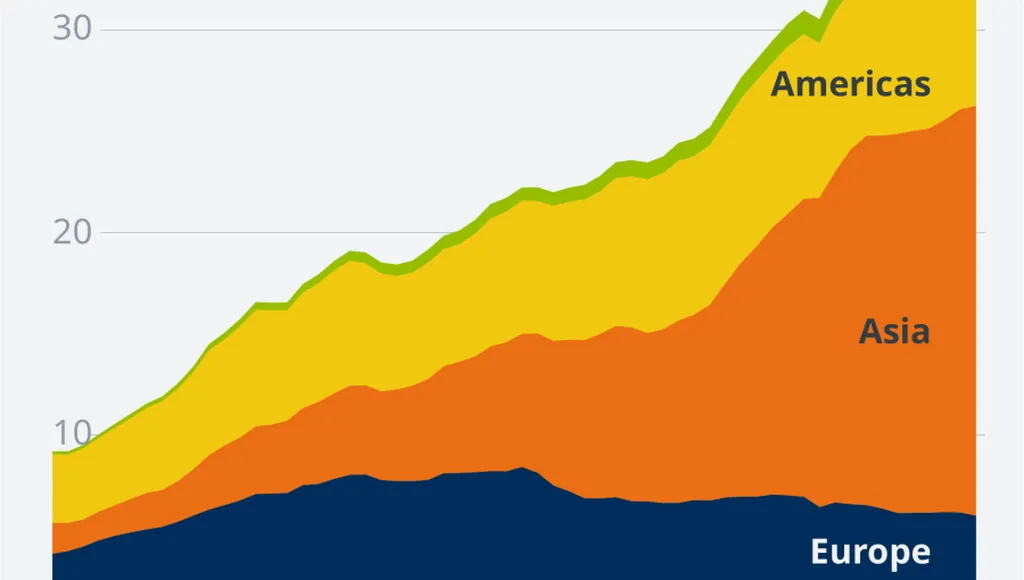A recent study published in ‘Energy Strategy Reviews’ delves into the intricate relationship between economic growth and environmental sustainability in Brunei, particularly under the lens of Technology Revolution 6.0. The research, led by Vu Ngoc Xuan from the Faculty of Economics at the National Economics University in Vietnam, reveals critical insights into how factors such as electricity consumption, foreign direct investment (FDI), gross domestic product (GDP), and renewable energy consumption (REC) influence carbon dioxide (CO2) emissions in the Southeast Asian nation.
The study employs a Vector Error Correction Model (VECM) to unravel the long- and short-term relationships between these variables. The findings are striking: electricity consumption, GDP, and FDI have a significant positive correlation with CO2 emissions, while renewable energy consumption stands out as a crucial mitigator. Specifically, a 1% increase in electricity consumption and GDP correlates with a 0.45% and 0.59% rise in emissions, respectively. In contrast, a 1% increase in renewable energy usage results in a 0.32% decrease in emissions.
Vu Ngoc Xuan emphasizes the need for Brunei to rethink its economic strategies, stating, “Our findings suggest that Brunei’s current reliance on fossil fuel-driven economic growth is unsustainable. There is an urgent need to diversify the economy and enhance the role of renewable energy.” This sentiment underscores the commercial implications of the research, as it highlights the potential for renewable energy sectors to not only reduce emissions but also create new economic opportunities.
Moreover, the study flags the pollution haven effect associated with FDI, where a 1% increase in foreign investment leads to a 0.27% rise in CO2 emissions. This aspect is particularly critical for policymakers as Brunei seeks to attract foreign investments while balancing environmental responsibilities. The research advocates for stricter regulations around FDI and a more robust framework for renewable energy adoption to align with Brunei’s Vision 2035 and global sustainability goals.
As the energy sector grapples with the dual challenge of meeting rising energy demands and reducing greenhouse gas emissions, this study serves as a vital resource. It not only provides a data-driven analysis of Brunei’s energy landscape but also offers actionable policy recommendations aimed at fostering a low-carbon economy.
For professionals in the energy sector, the implications of this research are profound. It suggests a transformative shift towards renewable energy could not only mitigate environmental impacts but also stimulate economic growth through innovation and diversification. As the world moves towards a more sustainable future, Brunei’s path could serve as a model for other nations navigating similar challenges.
For more insights into this research, you can visit National Economics University, where lead author Vu Ngoc Xuan is based.




